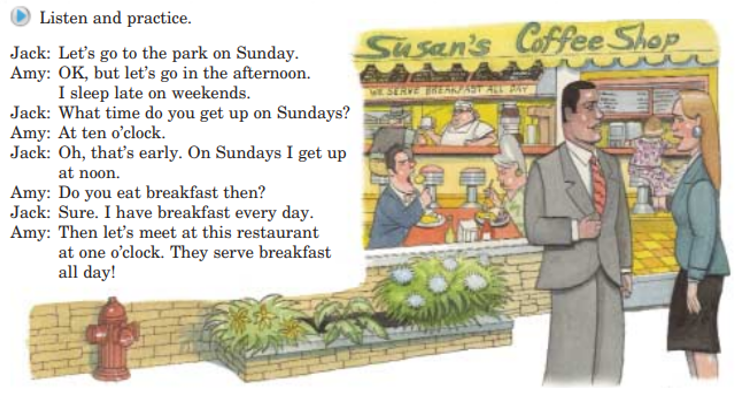
7
CONVERSATION I get up at noon.
Listen and practice.
Jack: Let’s go to the park on Sunday.
Amy: OK, but let’s go in the afternoon.
I sleep late on weekends.
Jack: What time do you get up on Sundays?
Amy: At ten o’clock.
Jack: Oh, that’s early. On Sundays I get up
at noon.
Amy: Do you eat breakfast then?
Jack: Sure. I have breakfast every day.
Amy: Then let’s meet at this restaurant
at one o’clock. They serve breakfast all day

8
GRAMMAR FOCUS
Simple present questions
Do you get up early? What time do you get up?
No, I get up late. At ten o’clock.
Does he have lunch at noon? What time does he have lunch?
No, he eats lunch at one o’clock. At one o’clock.
Do they drive to work? When do they drive to work?
Yes, they drive to work every day. Every day.
A Complete the questions with do or does. Then write four more questions.
1. ...........you get up early on weekdays?
2. What time........... you go home?
3. ...........your mother work?
4. How ...........your father get to work?
5. ...........your parents read in the evening?
6. When........... your parents shop?
7. Does ..............................................?
8. What time..................................... ?
9. Do .................................................?
10. When........................................... ?
B Pair work Ask and answer the questions from part A.
Use time expressions from the box.
A: Do you get up early on weekdays?
B: Yes, I do. I get up at seven o’clock.
early in the mornig
late in the afternoon
every day in the evening
at 9:00 on Sundays
at noon/midnight on weekends
at night on weekdays
time expressions